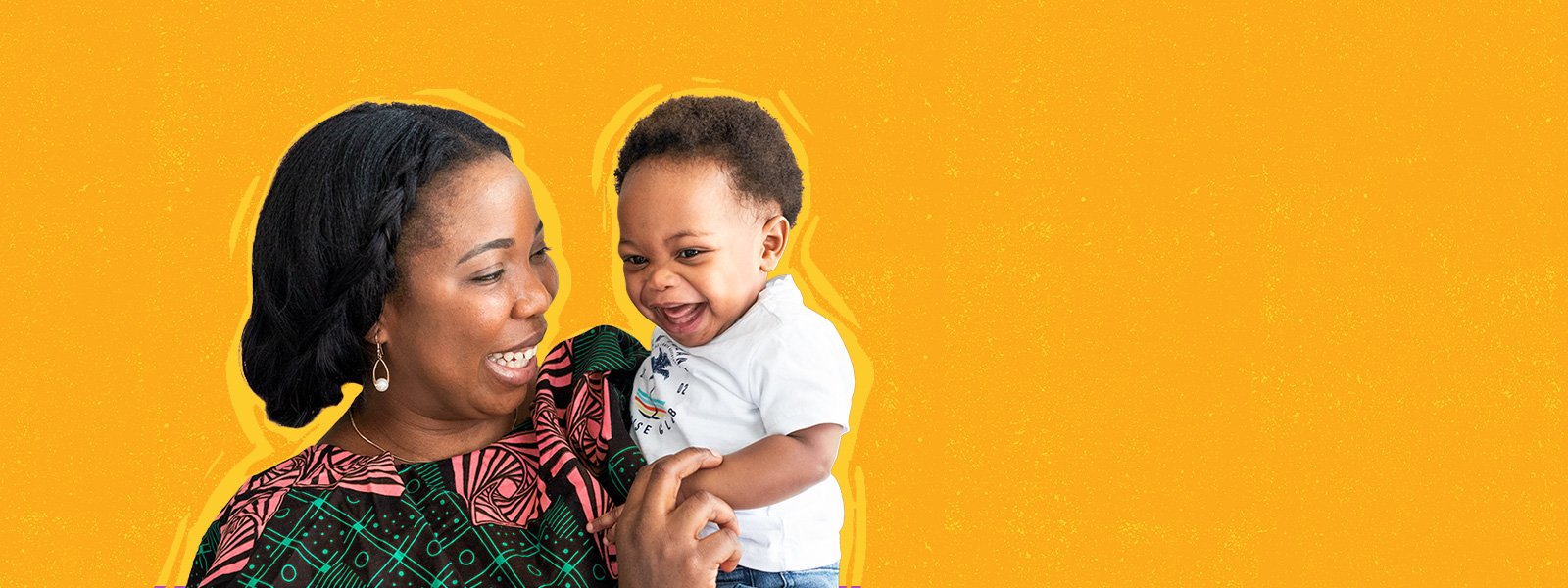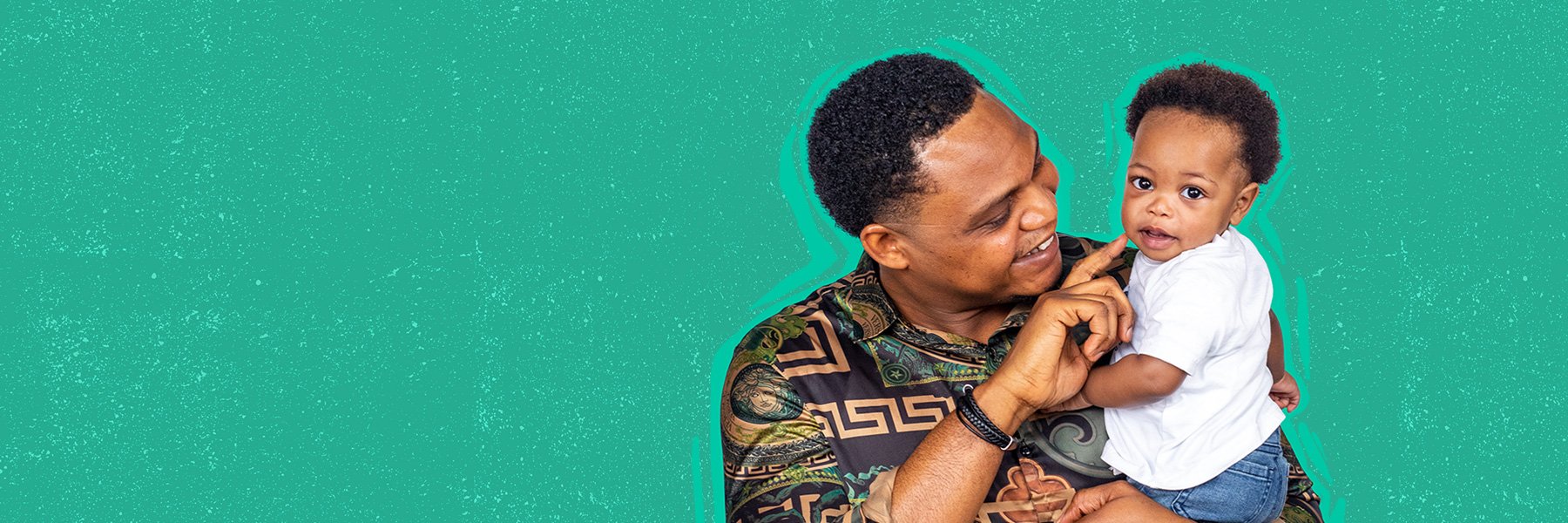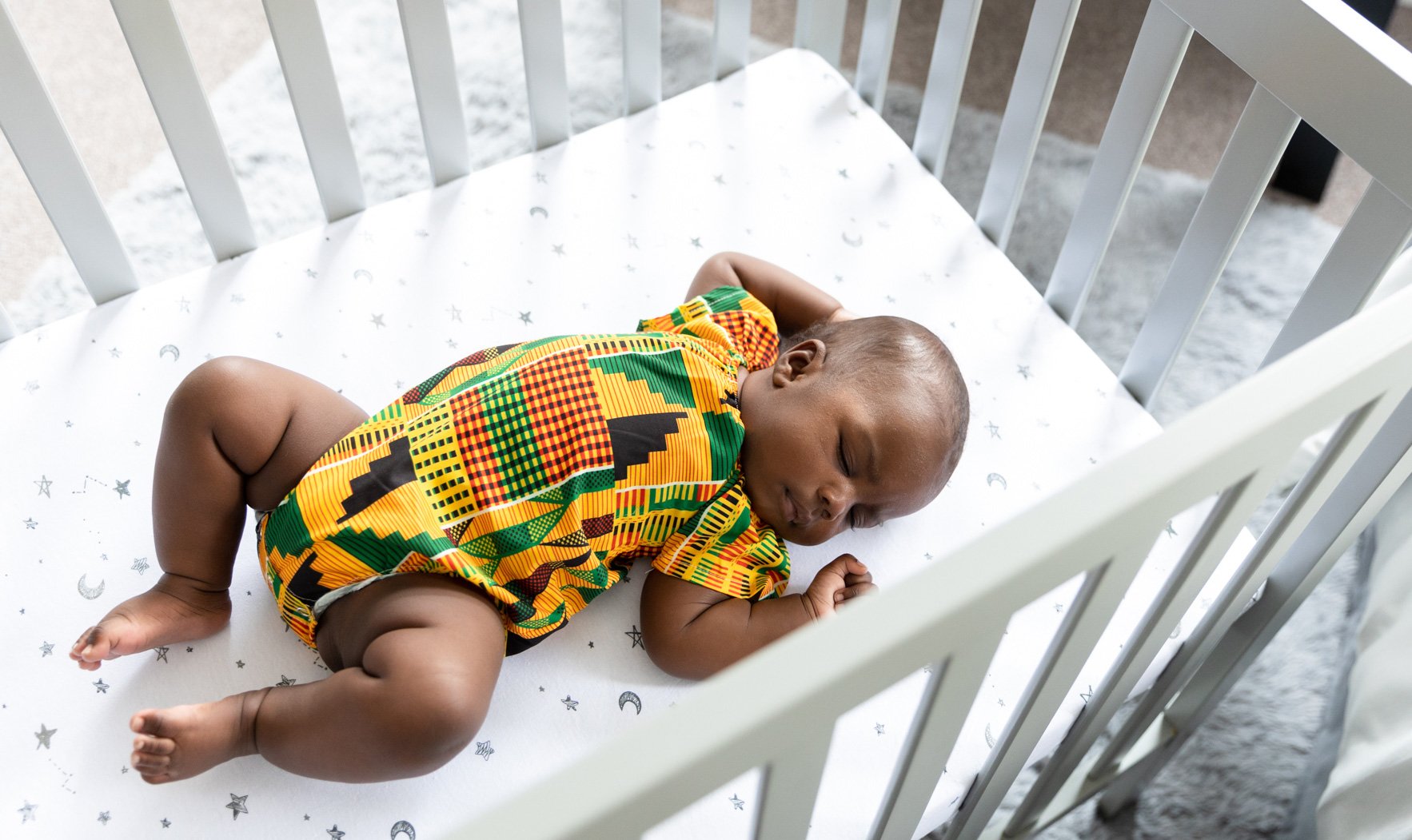
safe sleep
is worth it
What is Safe Sleep?
Safe sleep means your baby is sleeping on his or her back on a flat, firm surface: a crib, bassinet or pack ’n play with a tight-fitting sheet. Nothing else is in the sleep space with your baby — no bumpers, blankets, pillows, stuffed animals, toys, other children or adults. Safe sleep means your baby is sleeping in the safest place you can provide. Near you but not with you.
Room Sharing is Safe
Lay your baby down to sleep in a bare crib, bassinet or pack ’n play right beside your bed. This keeps your bond strong, makes middle-of-the-night feedings easier and gives you peace of mind knowing your baby is close by.
Bed-Sharing is Dangerous
Do not share a bed with your baby! More than 75% of sleep-related infant deaths happen when baby is sleeping with a family member. This includes falling asleep together on the couch or in a chair.

“Every first smile, laugh and step is worth it.”
Tips for Getting Your Baby to Sleep
We know safe sleep is hard to do every nap time and nighttime. Here are some tips to help you, your family and caregivers provide safe sleep for your baby every time.
Establish a Sleep Routine
Develop and stick to a calming bedtime routine. Wind down playtime. Turn off electronics. Try a warm bath, a bedtime story, a gentle massage
Sing and Rock to Sleep
Develop and stick to a calming bedtime routine. Wind down playtime. Turn off electronics. Try a warm bath, a bedtime story, a gentle massage
Use a Soft Touch
Develop and stick to a calming bedtime routine. Wind down playtime. Turn off electronics. Try a warm bath, a bedtime story, a gentle massage
Share the Room
Develop and stick to a calming bedtime routine. Wind down playtime. Turn off electronics. Try a warm bath, a bedtime story, a gentle massage
Other Tips To Try
Relieve baby’s gas with Bicycle Legs or Froggy Pose.
Place a white noise machine on low volume three feet away from baby.
Dress your baby in sleeping clothes for the environment. When it’s cold, use a sleep sack instead of a blanket to keep them warm.
Swaddle safely.
Mimic your body’s warmth by using a low-temperature heating pad to warm baby’s mattress a bit. Always remove the heating pad before laying baby down.
When night feeding, find your safe space (for example, get out of bed, sit in a sturdy chair, watch TV) so you don’t doze off. Set your phone alarm to go off every five minutes.
Breastfeeding moms can pump during the day so Dad or a partner can help with night feeding.
Exhausted? Have a plan — call a friend, sister, mom, grandma, aunt — anyone who will support and encourage you.

“Hard is no barrier to another day of baby firsts.”
Why Provide Safe Sleep?
Babies who sleep on their back in their own bare crib, bassinet or pack ’n play have a lower risk of accidental suffocation. Babies sleeping on their stomachs, in the nook of an arm or surrounded by soft bedding can rebreathe their own exhaled air. Rebreathing causes oxygen levels to drop and carbon dioxide levels to rise, and if the baby doesn’t wake for a breath of fresh oxygen, they can suffocate.
Sleep-related deaths are the most preventable infant deaths. Every person who shares and practices safe sleep standards has the potential to save a life.

This Is What Safe Sleep Looks Like
Babies who sleep on their back in their own bare crib, bassinet or pack ’n play have a lower risk of accidental suffocation.
Safe Sleep, Even When
Even when someone else is caring for your baby. Make sure everyone who watches your baby — from grandma to siblings to daycare providers — knows about the importance of safe sleep.
Even when your baby is sick. Your instinct may be to cuddle your baby and hold them upright, but when their tiny windpipe is congested, they need easy access to fresh air more than ever.
Even when you think your baby would be more comfortable sleeping on their stomach. Comfortable does not equal safe. Give your baby's tummy time to develop strong shoulder and neck muscles when you are both awake and you are watching them.
Even when you are breastfeeding. Breastfeeding is best, but as soon as you are done feeding your baby, put them in a safe space for sleep.
Even when you are traveling or don’t have a permanent place to live. To receive a free portable safe sleep space for your baby, call 211 or email CradleCincinnatiCares@cchmc.org.
Even when you are exhausted, and it would be easier to get your baby to sleep in your arms. This is when safe sleep is most important. The truth is, new parents are always sleep-deprived, and that can have the same eect on our brains and bodies as intoxicants like drugs and alcohol.
Even when you are overwhelmed with everything going on in the world.








